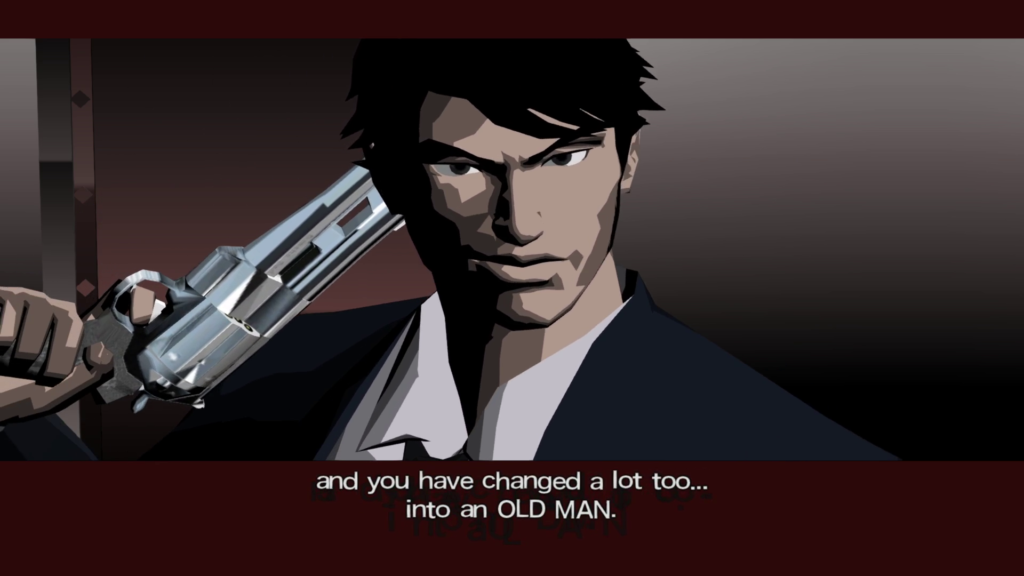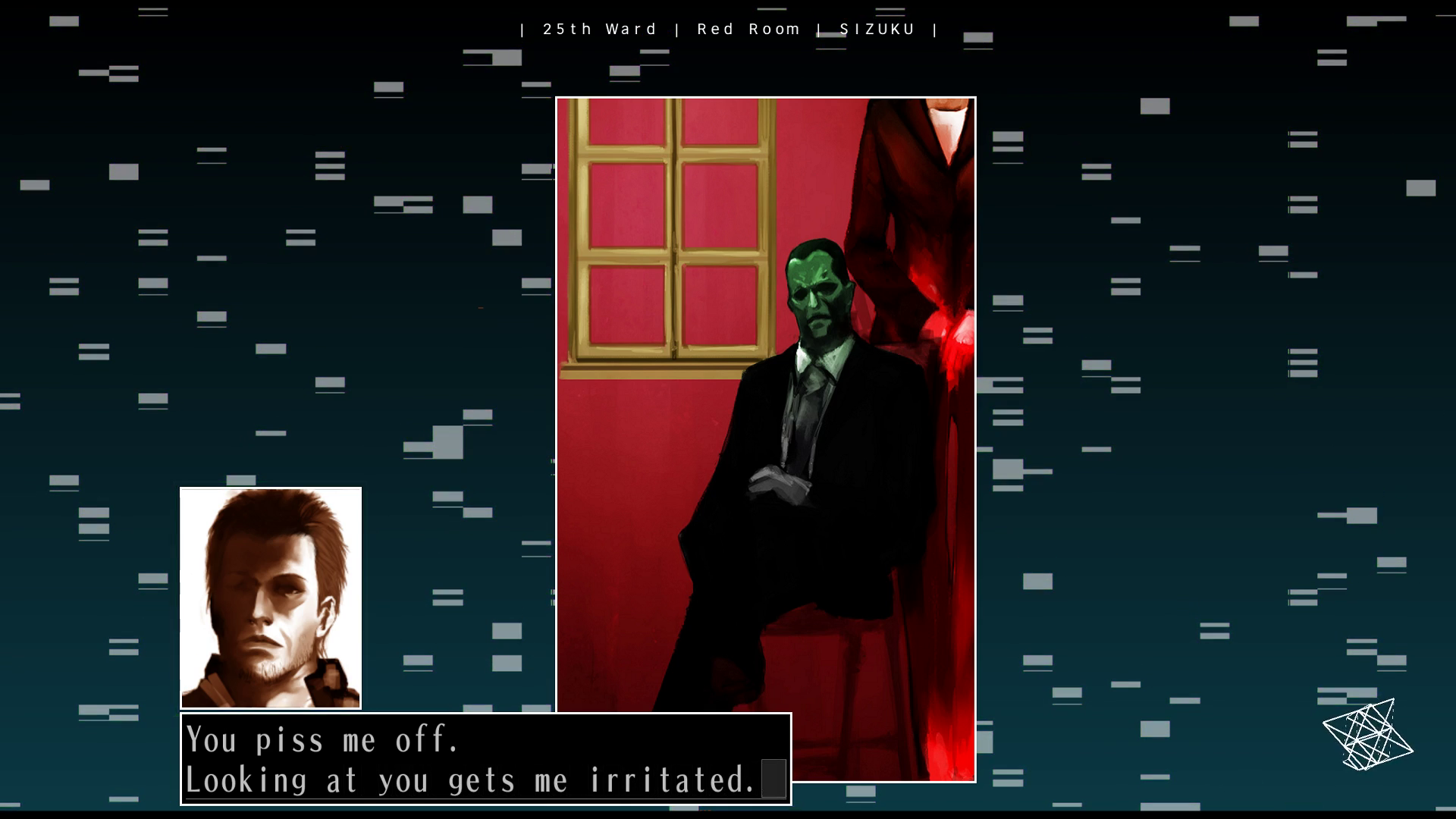Suda treats the other old men with scarcely more dignity. Harman Smith, the chief old man of killer7, is fine with killing and brainwashing children and casually enslaves the dead to execute the will of the sinister US government. But he is subject to absurd physical, verbal, and sexual abuse, despite his power. Gruesomely, Emir even shoots his eye out.
Benjamin Keane, a craven and power-hungry misogynist, oversees Harman’s elementary school to subvert democracy and execute ELBOW policy.
Greg Nightmare, the gray-haired education minister, secretly rules the US and is therefore involved in the crimes against children at Coburn Elementary School and possibly even the genocide of Japan (symbolically coherent though it contradicts his literal position as an ally of Kun Lan, who supports Japan). He appears only as a corpse, mockingly laughing at Emir, who is another victim of the lineage of old men—the presidents whose portraits hang above him. Killing the past means removing the old men’s ability to perpetuate themselves: in the boss fight, the player damages Greg by comically lowing his trousers and shooting his penis off.
Curtis Blackburn, as we have seen, systematically abducts, rapes, and butchers little girls. Dan Smith calls Curtis an “old man” repeatedly before he shoots him and lets Curtis’s own organ-removing machine kill him.

Old men of this kind pack The 25th Ward in the roles of cops, spies, politicians, hitmen, and gangsters. Hatoba continues running the HC Unit that executes civilians to protect their bosses from the “criminal power” those same bosses deliberately unleash, Kosaka is prepared to deceive and kill in a war over the young he wages out of selfish loyalty to Uminosuke’s false utopia, Kiryu oversees the secret police and knowingly leads his own agents to their deaths, Ishiki betrays Tsuki in order to save an even older old man, and Kipple, in pursuit of economic and political power, threatens, demeans, and manipulates Tokio under threat of death to him and his family.

The protagonists, all young men, struggle against the elders. Only Tokio succeeds. In “SIZUKU,” the Red Lady and the aged Gentleman kidnap Tokio and force him to fight for his right to exist. The Red Lady identifies the Gentleman as her boss—the “quiet old man.” Evaluating his situation, Tokio asks, “Are you with the Regional Adjustment Bureau? Are you with the Ts or the Fs or the Cs? Or are you Kamui believers or something?”

The Red Lady responds, “I told you. The problem isn’t who we are. If there’s a way to do it, sooner or later, someone will.”
The problem is not the old man’s specific party or organizational affiliation. All the old men are part of the same ideology. I might call it neoliberalism here (this not a sociology paper!), but it would be an oversimplification to claim that the present prevailing economic ideologies are the same as the neoliberalism of the 1980s. It is, however, continuous with it. They just want wealth and power. Turning to Kinjo once again, “It’s not about goals. It’s a natural instinct. […] A catfight, if you will, a real shit show.”